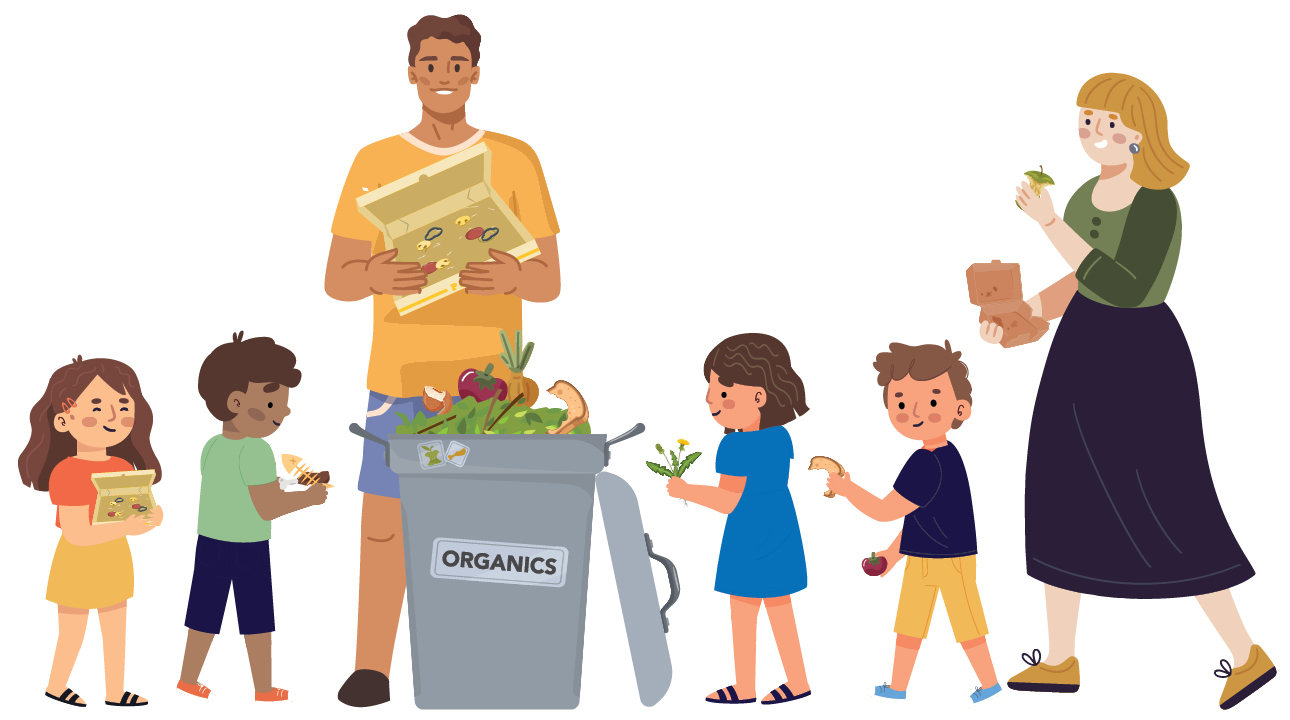Organics Diversion

The RDKS is focusing on reducing the amount of organics in our landfills.
A Small Act...with a BIG Impact!
Separating your trash into organics, recycling, and garbage has a purpose. More than one, actually!
Dumping all of our waste into a hole in the ground isn't just chaotic - it's terrible for the groundwater, it's terrible for the air, and the hole would fill up very quickly. This is why a lot of work and funds go into constructing safe facilities and managing waste in our regional district - we have a mandate to follow environmental regulations and we also keep our taxpayers in mind.
There are two main reasons behind separating your garbage, or "waste diversion":
- Separating organics from your garbage slows down how fast our landfills get full. Once a landfill is full, we have to build a new one and that costs tens of millions of dollars, not to mention the difficulty of finding a location.
- When organics go into the landfill, they get squished under the other garbage and decompose without oxygen. This produces methane (a potent greenhouse gas) and extra leachate (garbage goo).
 What happens when organics go into a landfillThis is why it matters what goes in your garbage - we're making sure our landfills last as long as possible and don't contribute to polluting our air or water systems.
What happens when organics go into a landfillThis is why it matters what goes in your garbage - we're making sure our landfills last as long as possible and don't contribute to polluting our air or water systems.
What's in your garbage?
Last December, the RDKS hired TetraTech to conduct an analysis of the garbage coming into the Thornhill Transfer station. The results were surprising...
 Thornhill Transfer Station Garbage Analysis
Thornhill Transfer Station Garbage AnalysisDecember 2024
As you can see, a whopping 38% of the garbage analyzed was organic material. It's a daunting number, but it also means there's vast room for improvement, and we're relying on our residents to help.
What can I do?
If you don't already, keep an organics container in your kitchen and toss food scraps in that container instead of your garbage. That's one small step that will have a big impact down the line. If you have curbside collection, your organics will be collected at the curb. If not, can you backyard compost? Is there a local gardener that wants your organics? Or could you start a community compost group?
Addressing this issue now will save us money and time in the future, along with preserving this incredible part of BC. Join in and help us be good stewards of the land and resources we're so fortunate to enjoy. Remember, separating your organics is one small act with a BIG impact!

